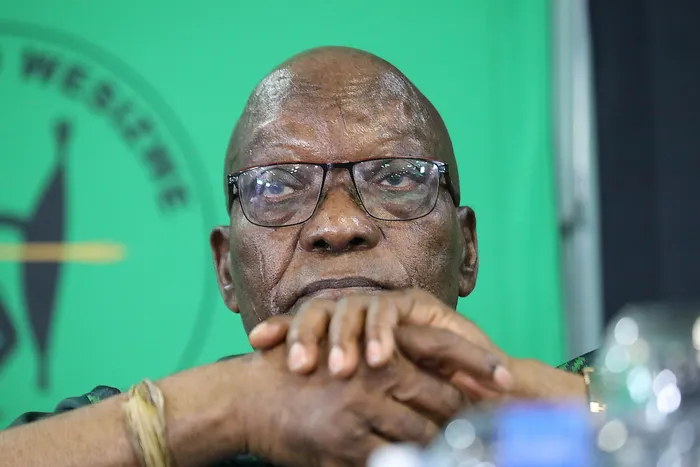No Sacred Cows: MK Party targets 'lavish lifestyle' of South African judges

Jacob Zuma’s uMkhonto weSizwe Party says judicial power must come with public accountability and financial disclosure.
Image: Independent Media
Jacob Zuma’s uMkhonto weSizwe (MK) Party has called for the immediate implementation of lifestyle audits and mandatory asset declarations for all members of South Africa’s judiciary, from the Constitutional Court to the lower benches.
In a statement, released on Tuesday morning, the MK Party national spokesperson Nhlamulo Ndhlela said the party is drawing a “clear line in the sand,” arguing that if Members of Parliament, elected by the people and accountable to them, are required to declare their assets, then judges who wield significant constitutional power should be held to the same standard.
“Judges must be held to an even higher standard of scrutiny and criticism in society,” Ndhlela said.
“South Africa cannot afford to have a judiciary that is shielded from the same transparency expected of other arms of state.”
He said that while judges are entrusted with critical decisions that shape the lives and freedoms of South Africans, they are not infallible.
“Judges are human, and prone, like all of us, to error and influence, including bias, whether conscious or unconscious,” he said.
“The long-standing myth of judicial immunity from human frailty must be challenged if we want to build a judiciary that is truly beyond reproach.”
Ndhlela said that the MK Party, once in Parliament, intends to amend the Constitution to reinforce parliamentary sovereignty, ensuring that the will of the people, as expressed through their elected representatives, cannot be overridden by judges.
“The judiciary interprets the law. It does not make law. Parliament must reflect the will of the people, and that sovereignty must not be diluted,” he said.
The party’s demands include immediate, independent, and regular lifestyle audits, as well as public disclosure of judges’ assets.
According to Ndhlela, the audits should scrutinise unexplained wealth, financial relationships, political affiliations, home and vehicle loans, tax status, and international travel within the last five years.
“The people of South Africa deserve to know who funds the lavish lifestyles of some judges,” Ndhlela said.
“As long as judges continue to operate in a cocoon of untouchability, the rule of law remains at risk. Accountability must be universal, not selective.”
He added that the party’s proposal is not an attack on the judiciary, but a defence of democracy.
“Transparency is not a threat, it is a necessity,” he said.
“The integrity of our courts depends not only on the law, but on public trust. And that trust must be earned through openness, not opacity.”
He added that the MK Party will not rest until the judiciary is held to the same, if not higher, ethical standards as other public servants.
“The days of sacred cows are over. South Africans are watching and they demand answers,” he said.
simon.majadibodu@iol.co.za
IOL Politics
